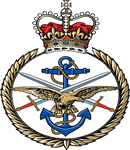Commemorated: | |||
| 1. Memorial: | Iringa Cemetery | IV. B. 2. | |
| 2. Book: | The (1921) Masonic Roll of Honour 1914-1918 | Pg.119 | |
| 3. Memorial: | The (1940) Scroll - WW1 Roll of Honour | 30D GQS | |
Awards & Titles: | |||
Family :
Son of Col. G. Brodie Clark and Mary Brodie Clark (stepmother), of 44, Grange Rd., Chiswick, London, England.Service Life:
Campaigns:
- The First World War 1914-1918, World-wide.
| Unit / Ship / Est.: King's African Rifles |
"The KAR began World War I with 21 small companies in 3 battalions (each with up to 8 companies following the British pre-1913 half-company TOE): the 1st Nyasaland (half of the battalion was located in northeast Nyasaland), 3rd East Africa (with one company on Zanzibar) and the 4th Uganda, both of the latter included a 4th platoon of Sudanese with the 4th platoons of 4th battalion being led by Sudanese officers. Additionally the companies were scattered all over British East Africa. Full strength in 1914 was 70 British officers, 3 British NCO's, and 2,325 Africans. There were no organic heavy weapons (each company had only one machinegun), including artillery, or organized reserves and the companies were in reality large platoons of 70 to 80 men. The regiment fought in the East African Campaign against the German commander Paul Erich von Lettow-Vorbeck and his forces in German East Africa. Transport and support into the interior was provided by over 400,000 porters of the Carrier Corps. By the end of the Great War the KAR comprised 1,193 British officers, 1,497 British NCO's and 30,658 Africans in 22 battalions, including two made up of former German askaris, as noted above. In ""Armies in East Africa 1914-18"", Peter Abbot notes that the KAR units recruited from former prisoners of war were used as garrison troops by the British, to avoid any conflict of loyalties. However, one of these battalions was involved in the pursuit of one Hauptman Wintgens from February to October 1917. KAR casualties in World War One were 5,117 killed and wounded with another 3,039 dying from diseases. " |
| Action : Post War |
Post War includes all operations in all theatres up to 31st August 1921. This excludes the campaign in Russia against the Bolsheviks. It also includes men who succombed to wounds post war and who died from various causes whilst still in the services but post war.
Detail :
Birmingham Daily Gazette 21st December 1918 - " A VALUABLE OFFICER - DEATH OF CAPTAIN CLARK, OF BIRMINGHAM. The death has occurred from pneumonia of Captain Charles Herbert Clark, A.S.C.(T), at his home in Mansel-road, Small Heath. Captain Clark, who was 51 years of age had served 35 years witht he Birmingham Volunteers and Territorials, joining the South Staffords as a private. He got his commission on the formation of the Territorial Army, and his captaincy some months after the war had broken out. He performed invaluable work in 1914 at Handswoth and other places in recruiting an raising war units. His rejection for overseas service, caused primarily by being thrown from his horse during training, was a great blow to him but he was subseqently lent to the Ministry of Munitions, and carried out excellent work in that connection. By profession Captain Clar, who leaves a widow and two young daughters, was an engineer. He was a prominent member of the Lechmere Lodge of Freemasons. A splendid shot, he competed at Bisley many times, and was the holder of numerous trophies."
He is buried at Key Hill Cemetery, Birmingham.
Masonic :
| Type | Lodge Name and No. | Province/District : |
|---|---|---|
| Mother : | Lechmere Volunteer No. 1874 E.C. | Worcestershire |
Initiated | Passed | Raised |
9th October 1895 | 1st January 1896 | 15th May 1896 |
Source :
The project globally acknowledges the following as sources of information for research across the whole database:
- The Commonwealth War Graves Commission
- The (UK) National Archives
- Ancestry.co.uk - Genealogy, Family Trees & Family History online
- ugle.org.uk - The records of the United Grand Lodge of England including the Library and Museum of Freemasonry
Additional Source:
- Founder Researchers : Paul Masters & Mike McCarthy
- Researcher : Bruce Littley

